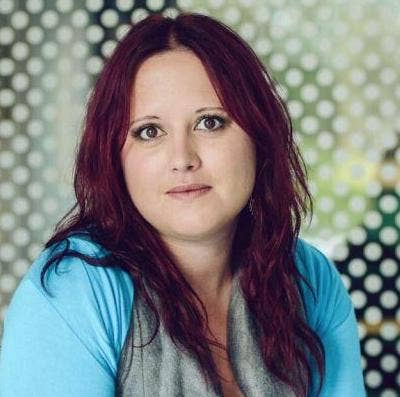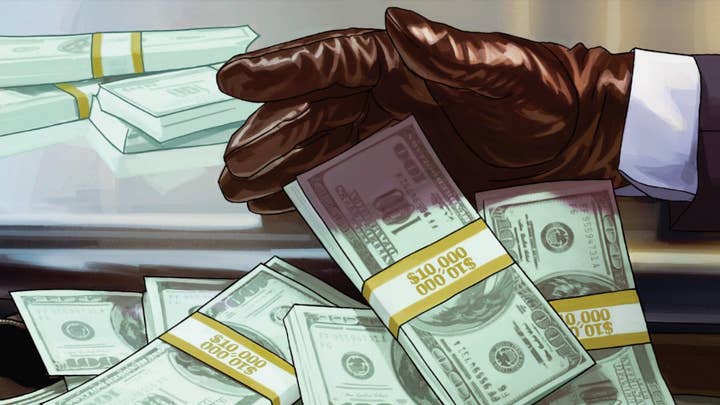From finding investors to pitching publishers: The funding journey explained
Our panel of experts lays out everything you need to know about securing funding in the games industry right now
Investment is a part of the games industry landscape that is always in flux. What developers and investors want is changing all the time, as are the variety of options that studios have for securing funding and reaching the market.
Hiro Capital's partner Spike Laurie, Fundamentally Games' COO Ella Romanos, Marvelous Europe's head of operations Sarah Burns, and XR Games' CEO Bobby Thandi tackled some of the key topics about investment at our latest GI Live: Online.
What funding should you go for?
There is a wide array of options for developers when it comes to securing money. Studios can bootstrap and fund themselves, which Thandi points to as "the ideal route" as companies keep 100% ownership, having no investors or board to answer to.
"That said, venture capital investment is good for certain firms," he continued. "For XR Games, it was a route that served our needs the best. We were in VR in 2017 when revenue wasn't great. We needed VC investment. We have three main investors, Praetura, Maven and ACT Capital Partners; each brings a different skillset to table, whether that's helping with C-suite employment and advisors, opening doors that might not be possible previously and giving us growth capital we need. They've supported us all along the way.
"It depends on the genre you're in, the medium of gaming you're doing, what the growth looks like for your particular market, what you are going to use funds for. If you find great investors, all they wish to do is support you. At first, they're on the other end of the table and can be negotiating hard against you, but as soon as the investment comes into your bank account, they're on your side of the table and want nothing but to grow your studio."
“Getting funding is rarely a one-stop thing. Rather than saying you need X money now, looking at next three years"Ella Romanos
For Romanos, it's important to figure out what your "funding journey" is as a company as this will influence the kinds of investment that you should be looking to take on.
"Getting funding is rarely a one-stop thing," she explained. "Rather than saying you need X money now, looking at next three years -- five is great, but pretty theoretical -- or even if you can look at first two or three titles and figure out what your funding journey might look like because they're not completely detached. You might need to get funding now but if you know where you're going, you might go for a publisher initially and want to get VC later. Understanding that journey helps you to then work out the best places to go."
On the other side of the equation, Laurie laid out what exactly a venture capital outfit looks for when it comes to investing.
"What we look for as a VC is three things: a really good team - we're backing teams not single ideas, VC is long term funding. Secondly, we look for what it is a studio is doing that's different and defensible. Thirdly, is this a breakout opportunity?
"We have a duty to investors to return their money ultimately. VC is a financial instrument from investors. We need to [have] a five-time return on their investment. There are some genres or game types where you can't do that as easily as others."
What are the red flags you should look out for?
The panel also looked at what the red flags were when it came to fundraising, both as an investor or publisher, and as someone seeking investment.
For one, developers should be careful and ensure that there actually is an audience for their game, or even an argument for their project to exist in the first place.
"You are making a game because you are passionate about it," Romanos said. "Hopefully you have identified there is a market and an audience, and hopefully that doesn't mean male 18-to-35 year-olds -- hopefully you've gone further than that.
"The thing I see missing a lot is the joining the dots between your game and your market and audience and competitors. Joining the dots between why this game will target that market or why this game should exist now is something that we struggle to see in pitches in particular." Marvelous Europe's Sarah Burns added: "Often you'll see projects that are described as 'this title meets this title' but it's brand new and doesn't exist. Well why doesn't that exist? Does that work?"

Another red flag is developers seeking funding who aren't able to respond well to feedback. This isn't a great signal that a studio would be easy to work with.
"When we give feedback to founders and teams, it should be a given that it's meant in a good spirited way, that'll help that team moving forward," Laurie said. "One of the easiest signs that a team won't be easy to work with is when people are defensive, brittle or unable to understand that perspective."
XR Games' Thandi agreed that it is vital that developers not only take on feedback, but also alter their decks and presentations to incorporate these changes. But he also said it's vital that developers have their own list of red flags for investors.
"[You need to] find out the size of the investor's fund. Can they follow on their investment? When you do a fund raise, you'll be doing more than one. You absolutely need to listen to your gut. When you get into bed with a VC investor, you're in bed together for seven, eight, nine years. You need to be sure that you have 100% trust with this person and you can see yourself being on the phone with these guys once or twice a week, be present at board meetings and so on.
"What really helped me ascertain whether one VC investor was better than the rest was how they'd introduce you to key people that could help drive your business. For example, when we were courting investment, I was being introduced to a potential chairman. I thought it was cool that while the VC was doing their due diligence, he's allowing me to increase my network. The investment might not go through, but I walk away with a very key contact. I found that to be really useful. Sector-expertise and reading between the lines are both really important."
How best to approach investors and publishers
We all know that you only really get one shot at a first impression and this is very true when it comes to securing investment. There are a variety of ways to approach a potential business partner. What works will ultimately depend on the person, the time and the place, but our panel had some pointers.
"If you can secure a warm introduction directly to the investor, that's golden and the best way forward," Thandi said. "Anything else, whether it's a cold contact or approach just doesn't carry the same merit as a warm introduction. If you can't secure that warm introduction, you need to improve your hustling capabilities, because that's relatively straightforward compared to growing and scaling a game studio, creating hit games and so on."
Laurie agreed, though did share one story of a cold contact that ultimately paid off for the developer.

"Your first interaction with the investor sets the tone for the entire relationship but also the entire pitching process," he said. "I've had a founder find my number from a games industry event and call me directly. A lot of people wouldn't like it. I didn't mind. It showed me he had a bit of chutzpah and was able to put himself out there. Now, that's not an invitation for people to do the same thing because it will wear off, but make sure you research the investor you're going to and tailor your pitch to that investor.
"Look on LinkedIn and see if you have any mutual connections; that's the first thing to put your best foot forward. Don't just get on a call and walk through your pitch materials. Think about why that investor might go for you, think about what the best approach is and don't rush it. "If you know that investor is going to be at an event, use that opportunity, take that face-to-face rather than jumping on a Zoom call and going through your pitch deck. Different approaches for everybody, but my point is to take the time to get the approach right and introduce yourself and your business correctly."
For a company like Marvelous Europe, the research part of the equation largely comes down to making sure that the publisher a developer is approaching is the right fit for the project they are pitching.
"Ideally don't approach a publisher that doesn't support the kind of game you are looking to make," Burns said. "But by that same token, I don't think you should rule out publishers [entirely] based on what they have done before."
Other routes to market
Of course, game developers don't need a publisher to release a game these days. And the boom in the number of indie publishers in recent years means that often it can be hard for studios to decide whether they will partner with one and if so, with who.
But Burns believes that partnering with a publisher is a prudent move.
"It's difficult to make a first impression again," she said. "Developers can go out and try marketing and releasing the game into Early Access by themselves and when it doesn't work it's quite hard to bring that back. When you have the exposure and marketing and PR and everything a publisher can bring, it can be really helpful. If you can establish that community and grassroots yourself and grow the title in the indie space, it can work, but publishers can bring a lot of value in that area as well."

One of the alternative routes to market available to developers is crowdfunding. Thanks to high profile games in the past turning to the likes of Kickstarter, the viability of this model is always something that people within the industry are evaluating.
But crowdfunding's use appears to be less about hard-earned cash and more about gathering hype.
"Having a community for your game and therefore having data to demonstrate that your audience likes the game is incredibly valuable," Romanos said. "Crowdfunding can do that, as can other things. But I'd say that crowdfunding is incredibly difficult to get right and therefore you need to know why you are doing it. Are you raising money to fund your game? You are probably not going to make enough through crowdfunding to fund much, certainly not all of it.
"If you are looking at it to build a community, then is it the best way to do that for your game because the thing that people forget is that Kickstarter itself is a community. If you are making a game for that community, then yes it's great. If you're not, then you're basically putting your game up on a page and you have to point people towards it anyway.
"I've been involved with two campaigns, one succeeded the other failed. Honestly, I'd say I've raised various types of funding, I've worked with various kinds of funding myself, I've worked with investment funds, I've helped other studios and honestly it's by far the hardest type of funding I have ever worked on. Understanding the reason you really need it and really understanding the space is the important thing. If those things all line up then it's a viable option, but it won't be for the majority of studios."
How to pitch online
To round off the session, we asked our panellists what tips they would give to developer pitching at a digital event such as GI Live.
"Test your tech and if you can demo your product, demo your product," Laurie said. "Slides are really good and a great way to explain your business, but if you can just share your screen and show something, it gets the investor right up to speed with what you are doing. Sometimes you are looking through pitches and you don't understand what the project is. If you can show it, you have saved everyone a lot of time and brought the investor or publisher on board very quickly."
Burns added: "You don't always have a lot of time on matching systems so if you can get across what the fun is initially, and can follow up with the build or a video, that is of tremendous value to us when we are trying to look for titles."
As time can be a constraint with meetings on online platforms, it can be worth arranging another appointment outside of the constraints of the event where you can really get into detail with your pitch.

On the other hand, it's also worth noting that meetings don't need to take up the entire slot either.
"Don't take up the whole meeting with your pitch," Romanos said. "Keep it short. It's actually okay if a meeting ends early, but leave time for questions because hopefully your pitch covers a lot of the key points the investor or publisher needs, but there'll probably be specific questions they want to ask that will help. You also should leave time to ask them questions.
"I really like it when developers ask us, what are you looking for, how do you work? It shows they have really thought about it and that they are really engaged with the process. The ones I struggle with are the ones where they spend 20 minutes explaining the minutiae of their game design when we only have 20 minutes to talk."
She concluded: "Get across those key points as quickly as possible and leave time to get to know each other a bit."
More GamesIndustry.biz Academy guides to Selling Games
Our guides to making money from video games cover various aspects of the publishing process, whether you're a young game developer about to start a new project or an industry veteran:


